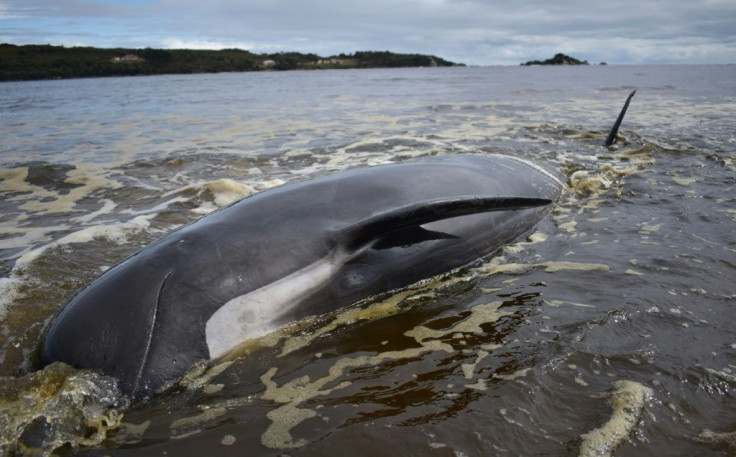Over A Dozen Dead Sperm Whales Wash Ashore In Mass Stranding
At least 14 dead sperm whales have washed ashore on the northwestern coast of Tasmania, an island located south of Australia.
All the whales were young males and had died when they were reported stranded Monday afternoon on King Island, a spokesperson for Tasmania's Department of Natural Resources and Environment said Tuesday.
Wildlife biologists from the Marine Conservation Program and a vet were called in to investigate the stranding, while Tasmania Parks and Wildlife Service staff monitored the situation on-site.
"It is possible the whales were part of the same bachelor pod, which is a group of younger male sperm whales associating together after leaving the maternal group," a spokesperson said, as reported by ABC News.
According to wildlife scientist Vanessa Pirotta, the cause behind the stranding of the whales on the beaches was a "complete mystery."
"We simply do not know why this happens," she said. "That's the million-dollar question every time this kind of event happens."
Pirotta further opined that a navigation error may have been the reason behind the latest stranding.
"There could be something else that might have driven them to the area, we just don't know," the scientist added. "But the key thing here is that any stranding can contribute to science."
Authorities will also be conducting a necropsy - animal autopsy - to learn more about the mammals. The department added that aerial surveys will be conducted to check the presence of other whales in the area.
Resident Svetlana Jacobson saw the whales on the beach and said it appeared that they had been lying there for a long time.
"My family and I went and saw 14 whales along the beach," she said. "They lay there for quite a long time as they already had a specific smell and blood around."
Authorities urged the community members to maintain their distance from the beach. Swimmers and surfers have also been asked to avoid immediate areas, considering the fact that blood from the whale carcasses may attract sharks.
"Members of the public are reminded it is an offense to interfere with protected wildlife, including being in possession of parts of a dead whale."
This is not the first incident of whales being stranded on the sparsely populated west coast of Tasmania. In September 2020, hundreds of dead pilot whales washed up on the beach, creating unprecedented turmoil. While the authorities were able to save at least 111 whales after a week-long rescue mission, more than 350 whale carcasses had to be disposed of.

© Copyright IBTimes 2025. All rights reserved.






















